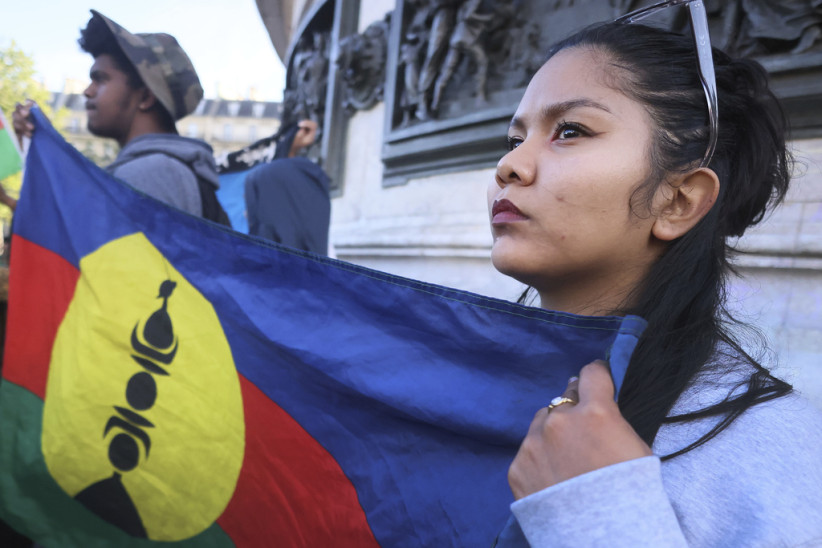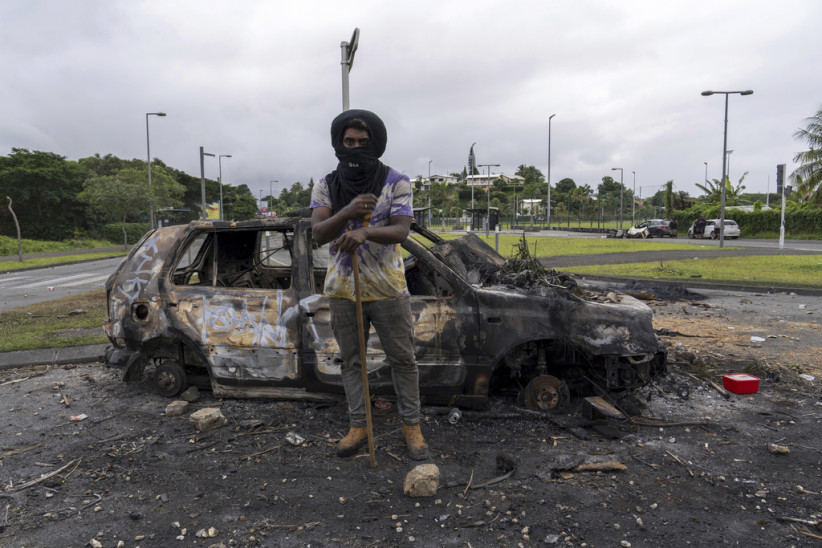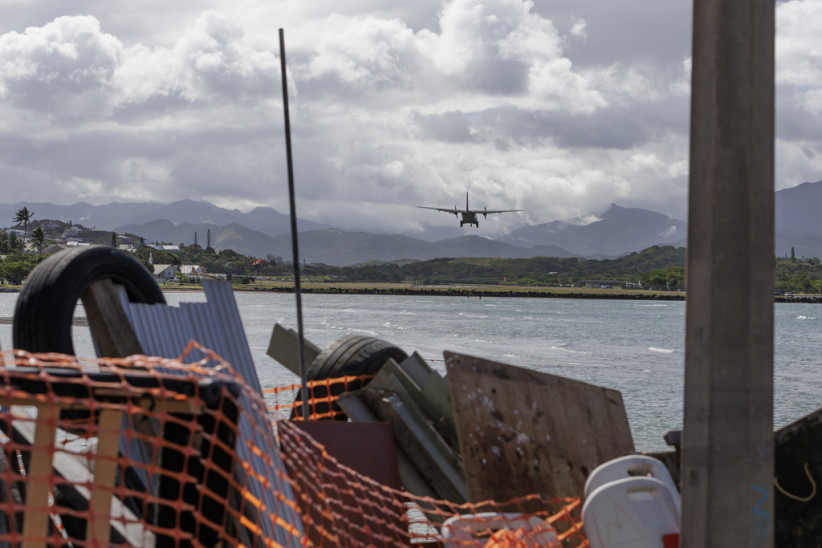More than 600 heavily armed gendarmes were sent to secure Route Territoriale 1, the main road connecting the capital to the airport.
A major operation has been launched by French forces to regain control of a road linking New Caledonia’s capital, Noumea, with the main international airport, as one man died in sixth consecutive night of violent unrest.
Officials said more than 600 heavily armed gendarmes were sent to secure Route Territoriale 1, the main road linking the capital to the airport.
Flights to and from the main island of New Caledonia have been canceled since the unrest began, stranding travelers and cutting trade routes.
French Interior Minister Gérald Darmanen said “a major operation with more than 600 gendarmes” had begun “with the aim of regaining full control of the 60km of the main road” and allowing the airport to reopen.
On Saturday, Noumea Mayor Sonia Lagarde said that while overnight violence had eased somewhat thanks to a 6pm to 6am curfew, “we are a long way from a return to normal”. .
“The situation is not improving, on the contrary, despite calls for calm,” he said, saying Noumea was “under siege.”
“The damage is incredible… It’s a picture of desolation.”
Why are the citizens of New Caledonia rebelling?
New Caledonia has been shaken for the last six days by intense incidents, as a reaction to the changes decided by Paris in the way the electoral right is exercised on the Pacific island.
These are the most severe and violent incidents that have hit New Caledonia in the last 30 years, according to Aljazeera.
Where is New Caledonia and why does it concern France?
New Caledonia is an overseas possession of the French in the Pacific Ocean and is located between Australia and the Fiji Islands. The total population of New Caledonia is close to 300,000.
When France occupied New Caledonia in 1853, French citizens from Paris deliberately moved to the area with the result that years later the Kanak communities, indigenous to the area, made up 40% and citizens of French origin, the so-called Caldoches, made up 25 % of the population. The rest are newer arrivals of French citizens from the French island territory of Wallis and Futuna and from Tahiti, as well as a mix of people from Indonesia, Vietnam and other Asian countries.
It is estimated that since 1998 more than 40,000 French citizens have settled in New Caledonia, while until 1953, French citizenship was granted to all its inhabitants, regardless of ethnicity.
New Caledonia remains years after its conquest, part of the French Republic and is not considered an independent state. It marks, thus, a sign of French colonial rule in the Pacific ocean.
What the changes to the electoral rules provide and why protests broke out
Under the terms of the agreement in Noumea, the capital of New Caledonia, voting in regional elections was limited to people who lived there before 1998 and their children. The measure was aimed at giving greater representation to the Kanaks, who had become a minority population.
Paris sees the arrangement as undemocratic and lawmakers approved a constitutional amendment to open the electorate to include people who have lived in New Caledonia for at least 10 years.
These changes have displeased the indigenous Kanaks, who argue that their independence is threatened and their path to self-determination is hindered. On the occasion of the above, the question of the secession of New Caledonia from France came up again. From February to April, protests have taken place in New Caledonia calling for an independent state and are now escalating. These positions were supported by indigenous political parties in the Parliament, the “National Liberation Front of Kanaks and Socialists” (Socialist National Liberation Front – FLNKS), who propose that the new independent state be called “Kanaky”.
Violent riot – Dead and many injured
Three natives and a policeman were killed in Thursday’s uprising. Two hundred people have been arrested so far, and along with the protesters, bandits are also involved, stealing and setting fire to buildings and cars.
The response of the authorities
On Thursday, France declared a 12-day state of emergency, with around 500 extra military and police personnel deployed in an effort to quell unrest in the capital, Noumea. There are 1,800 police and gendarmes in the territory.
The island’s authorities also imposed a curfew, closed the busy La Tontouta airport, closed schools and banned the use of the social media platform TikTok, as well as public gatherings.
Macro for the episodes
Macron condemned the violence and called for calm in a letter to New Caledonian officials. The FLNKS also condemned the violence and called on the protesters to remove the barricades. France’s president offered to hold a dialogue with the “camps” for and against New Caledonian independence, before a special conference of the two houses of Parliament rubber-stamped the bill. The president of New Caledonia Louis Mapou called on citizens to contribute to the existence of calm and dialogue.
Source :Skai
With a wealth of experience honed over 4+ years in journalism, I bring a seasoned voice to the world of news. Currently, I work as a freelance writer and editor, always seeking new opportunities to tell compelling stories in the field of world news.













